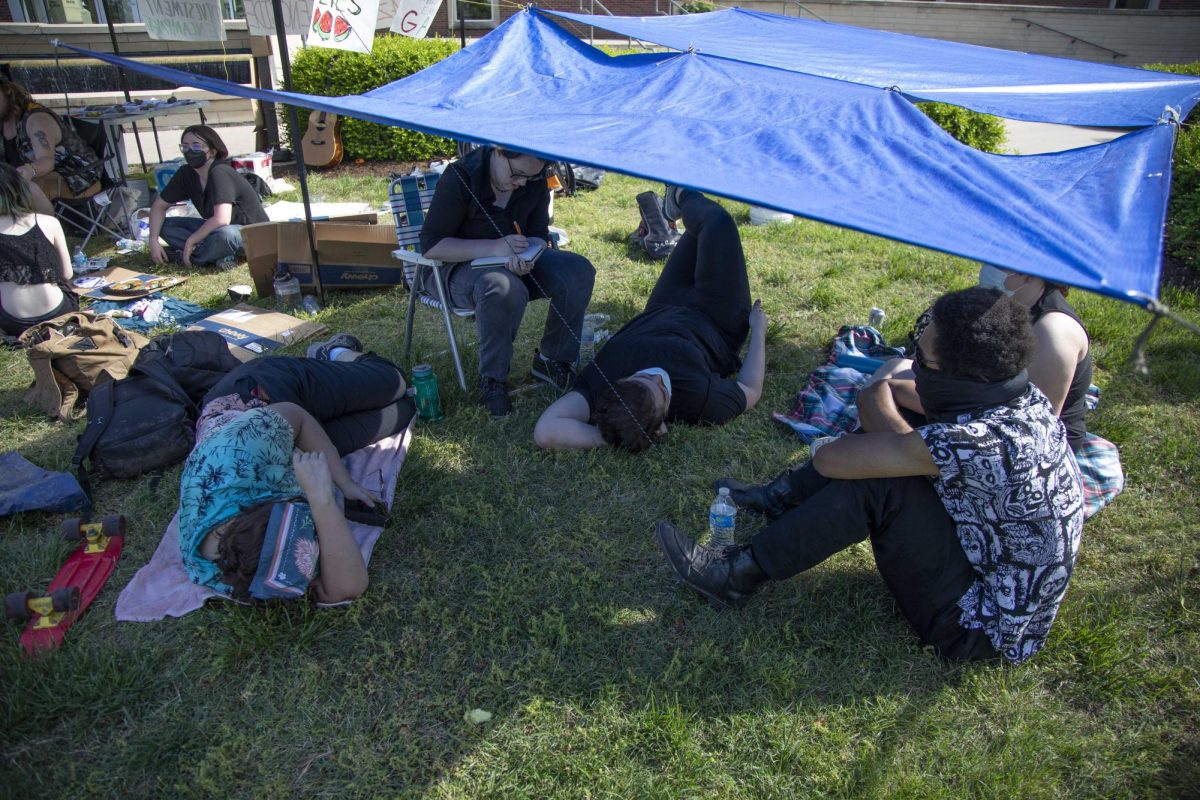Obama postpones Syria vote, August jobs report released
September 12, 2013
Obama will wait for Syrian intervention
In a nationally televised speech Tuesday, President Barack Obama said he would wait to seek a vote for military intervention in Syria while diplomatic means are pursued.
The move comes after the Assad regime admitted Tuesday to possessing chemical weapons. To avoid American military involvement, Russian President Vladimir Putin suggested a UN Resolution to have Syria place its chemical weapons stockpile under international control, something the Assad regime agreed to.
Advertisement
Secretary of State John Kerry is meeting in Geneva with his Russian equivalent, Sergey Lavrov, on Thursday to discuss the viability of the plan. The Obama administration is taking a trust-but-verify approach to the resolution and wants to be certain that this is not just a way to stall American involvement.
“We’re waiting for that proposal,” Kerry said during congressional testimony Tuesday. “But we’re not waiting for long. President Obama will take a hard look at it, but it has to be swift, it has to be real, it has to be verifiable. It can not be a delaying tactic.”
The United States, Britain and France agreed with the alternate solution but want to reserve the right for military strike. Lavrov and Putin want the threat of American military intervention ruled out of the Resolution.
Farhat Haq, a professor from Monmouth College teaching international relations, said while both sides have their differences about the Resolution, the diplomatic route is optimal for Syria, Russia and the United States.
“I think at this point there is probably very hard bargaining going on and both sides have something to gain not going to the military route,” she said. “I think that Syria would be willing (to agree to talks) because the regime is at risk right now and this will definitely buy them some time and, by all accounts, chemical weapons can create terror, but they are not a very useful tactic. I think they might see this as not as big a sacrifice.”
Labor participation rate drops to lowest in 35 years
The August jobs report was released Friday and showed slow growth for the American economy.
Advertisement*
The unemployment rate fell to 7.3 percent and 169,000 new jobs were created in the month of August. However, the labor participation rate, the percentage of Americans more than 16 years old now employed or seeking employment, dropped to 63.2 percent, its lowest since August 1978.
Economics Professor Kevin Sylwester said the numbers show improvement, but at a slow rate.
“169,000 jobs were created, but that’s not evidence of a strong recovery,” he said. “In the past when we’ve had deep recessions, we have strong recoveries. The global financial crisis seems to differ from the pattern in the sense that we had a huge drop in unemployment. It was certainly one of the larger recessions, yet we’re not seeing recovery afterwards.”
While the numbers are concerning, they are not wholly unexpected —there are several factors to consider about the numbers, Sylwester said.
“Part of this is not due to the recession or the lackluster recovery, it’s demographic,” he said. “Who’s starting to retire now: The baby boomers. That was a sizeable cohort of our population. As they start to retire, we should expect some decrease in the labor participation rate.”
Despite the numbers, Sylwester remained cautiously optimistic about the future of the economy.
“I think it will eventually pick up, I’m just not sure when,” he said. “We might be at slow job growth for awhile.”
NSA bypasses data once thought secure
U.S. and British spy agencies have ways to successfully bypass data once thought secure from spying.
Documents released by The Guardian show the National Security Agency has a variety of ways to crack almost any encrypted data.
Kemal Akkaya, associate professor of computer science, said encryption is similar to using code, but with computer data. It is a form of scrambling information so that people without the code cannot read it, he said.
Akkaya said financial institutions use encryption to keep people’s data private. Every time someone scans a credit card, the number is encrypted so that it cannot easily be stolen. This helps keep people’s identity safe he said.
The leaked Guardian documents say the NSA has been working with companies to obtain a “backdoor” to certain encryption styles, meaning they can crack the code at any time. Leaving a “backdoor” open puts many users data at risk because someone besides the NSA could crack the backdoor, making someone’s information like credit card numbers and social security numbers vulnerable, according to Akkaya.
Advertisement







